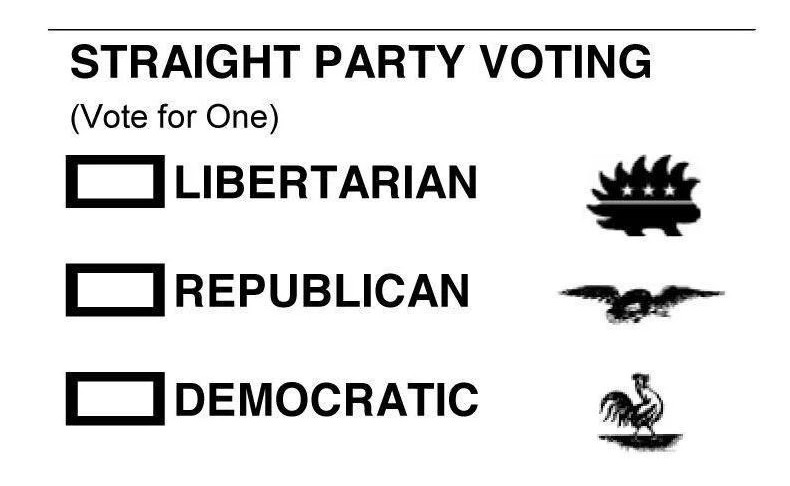A Note of Caution
By David Deming
President Trump won re-election handily last November, sweeping every swing state and achieving an impressive 312 to 226 margin of victory in the Electoral College. Trump also won the popular vote. Republicans retained a narrow majority in the House of Representatives and secured control of the US Senate with a 53-seat majority.With a conservative President about to take office, and Republicans in control of all three branches of the federal government, there’s been an element of euphoria amongst conservatives on social media. I’ve seen claims that the election results of last November represent a permanent change in the American electorate and a final rejection of leftist ideology. I would be more cautious in interpreting the results that optimistically.
I’ve been following politics since the 1960 Kennedy-Nixon debates. In 1964, at ten years of age, I was an enthusiastic supporter of Barry Goldwater. When Goldwater suffered a crushing defeat at the hands of Lyndon Johnson, people proclaimed that it was the end of the Republican Party and a permanent change in American politics. But four years later Republican Richard Nixon defeated Hubert Humphrey for the presidency. In 1972, Nixon won re-election in what was perhaps the greatest landslide in the history of US Presidential elections, defeating Democrat George McGovern 520 to 17 in the Electoral College.
Nixon’s triumph was short-lived. Less than two years after his historic landslide victory, he was forced to resign in shame, and his successor, Gerald Ford, lost to Democrat Jimmy Carter. Carter in turn was soundly defeated by Ronald Reagan in 1980. When Reagan won re-election in a 1984 landslide, people again thought it signified a permanent return to conservative governance. Yet in 1992, the Democrats were back in the White House when the American people elected Bill Clinton, a slick demagogue and leftist. Barack Obama, another Democrat and leftist, also won the office of President in 2008 and held it for two terms.
The 1990s and early 2000s saw the rise of radical leftist ideologies on an unprecedented scale, including climate alarmism, “diversity, equity, and inclusion,” “defund the police,” free health care, and open borders. With the Cold War concluding in 1989, an entire generation of young people grew up almost entirely ignorant of the horrors of communism. Leftists secured their occupation and control of virtually all public education institutes, from kindergarten through graduate school.
Most American voters are not ideologues or committed to any particular set of political beliefs. They exist in the default human condition of ignorance. US Presidential elections always boil down to a choice between two people. And the elections are usually decided by uncommitted voters who make a pragmatic decision based on factors such as the economy. If voters perceive that they’re worse off than they were four years ago, they will choose a different candidate, even if that candidate logically would make conditions worse.
I don’t interpret Trump’s re-election last November so much as a repudiation of leftism and Democrats, as the result of a bad economy and a weak Democratic candidate. Prices for essential supplies such as groceries and gasoline soared during Joe Biden’s term in office. Housing prices rose significantly, as did the cost of home and automobile insurance. Many families saw their real income drop. Wars erupted in the Middle East and Ukraine. And Kamala Harris was a weak candidate. Infamous for babbling incoherently in so-called “word salads,” she embraced the failed policies of President Biden and failed to present a clear alternative. Voters remembered that the world was more peaceful and prosperous during President Trump’s first term in office.
Another reason to be cautious, if not pessimistic, is that Republicans take office with an enormous problem hanging over their heads: the national debt. The US national debt has now reached the point ($36 trillion) that it can never be paid off. Inflation will continue. Both Republicans and Democrats put us in this position. I don’t blame the politicians. They simply did what the voters demanded. Anytime a true constitutional conservative like Ron Paul stood up and suggested reductions in spending, they were denounced as an extremist who wanted to hurt people and protect billionaires and corporations. It’s our own ignorance and greed that has landed us where we are today.
The preceding rhetoric is primarily a reminder that elections are more properly interpreted as results, not causes. If we really want to restore constitutional governance, and secure liberty, peace, and prosperity, we need to educate our youth. The public school system needs to be broken up. Colleges and Universities need to be reformed. Minds need to be changed. In a letter of 1816, Thomas Jefferson put it most succinctly: “if a nation expects to be ignorant and free, in a state of civilization, it expects what never was and never will be.”
David Deming is Professor of Arts & Sciences at the University of Oklahoma. Follow him on X @profdeming









Latest Commentary
Saturday 31st of January 2026
Saturday 31st of January 2026
Saturday 31st of January 2026
Saturday 31st of January 2026
Saturday 31st of January 2026
Saturday 31st of January 2026
Saturday 31st of January 2026
Saturday 31st of January 2026
Saturday 31st of January 2026
Saturday 31st of January 2026
Saturday 31st of January 2026
Saturday 31st of January 2026
Saturday 31st of January 2026